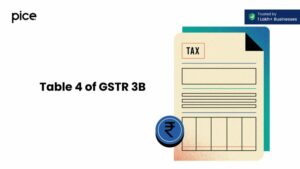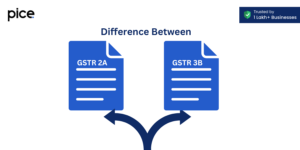GST on Canteen Services in Hospitals
- 20 Sep 24
- 9 mins
GST on Canteen Services in Hospitals
- Understanding GST on Canteen Services
- Applicability of GST on Hospital Canteens
- GST Rates for Canteen Services in Hospitals
- Exemptions and Special Provisions
- Impact of GST on Hospital Canteen Operations
- Compliance Requirements for Hospital Canteen Services
- Input Tax Credit for Canteen Services in Hospitals
- Challenges and Considerations for Hospitals
Key Takeaways
- GST on hospital canteen services typically falls under a 5% tax rate, with specific rates depending on the nature of the service.
- Hospitals must comply with GST regulations, including issuing tax invoices and managing Input Tax Credit for canteen services.
- Some hospital canteen services may qualify for GST exemptions, but the rules are complex and require careful interpretation.
- The implementation of GST has increased operational costs and compliance burdens for hospital canteens.
- Managing canteen recoveries from employees under GST presents additional challenges, particularly in applying the correct tax treatment.
Understanding GST on Canteen Services
Canteen services in hospitals, often considered part of the overall healthcare services provided, are subject to GST regulations. The GST law categorizes canteen services as a "supply of food," which is a taxable supply under the GST framework. Whether these services are provided directly by the hospital or through an external Canteen Service Provider, the tax implications remain consistent. The supply of food in canteens is treated as an outward supply and is subject to applicable GST rates. These services are essential for patient care and employee welfare but must comply with GST norms like any other taxable supplies.
Applicability of GST on Hospital Canteens
GST is applicable to canteen services in hospitals, regardless of whether the service is provided directly by the hospital or outsourced to a third-party Canteen Service Provider. The applicability of GST depends on the nature of the canteen service and the contractual agreement between the hospital and the service provider. For instance, if the canteen is run by the hospital itself, the hospital acts as a taxable person and must account for GST on the food charges. If the service is outsourced, the external provider is responsible for charging and remitting GST.
In private hospitals, canteen services are often bundled with other healthcare services as a composite supply, but GST is still levied separately on the food supply component. Hospitals must navigate the complexities of GST to ensure compliance, especially when these services are part of a larger healthcare package offered to patients and employees.
GST Rates for Canteen Services in Hospitals
The tax rate applicable to canteen services in hospitals typically falls under the 5% GST rate category. This rate applies to the supply of food and beverages in canteens, whether provided by the hospital or an external Canteen Service Provider. The GST rate is determined by the type of food and the nature of the service, with the general rule being that prepared food served in a canteen is subject to 5% GST.
For outdoor catering services, which might be relevant if the canteen services are provided by an external party under a contractual agreement, a higher GST rate of 18% might apply. Hospitals must carefully assess the nature of their canteen services and consult with Tax authorities to ensure they apply the correct tax rate to avoid unwarranted costs and compliance issues.
💡 If you want to pay your GST with Credit Card, then download Pice Business Payment App. Pice is the one stop app for all paying all your business expenses.
Exemptions and Special Provisions
There are certain exemptions and special provisions under GST that may apply to hospital canteen services. For instance, the supply of food within a healthcare facility that is considered part of essential Health Care Services might qualify for a GST exemption. However, this exemption often does not extend to canteen services provided as a separate, non-medical facility.
GST exemptions are also applicable to canteen facilities provided to employees under certain conditions, particularly when these are considered a welfare measure and part of the hospital’s responsibility. However, the rules around exemptions can be complex, and there have been contradictory rulings regarding what qualifies for exemption and what does not. Therefore, hospitals must carefully review their GST obligations and exemptions with legal and tax professionals to ensure compliance.
Impact of GST on Hospital Canteen Operations

The implementation of GST has had a significant impact on the operations of hospital canteens. One of the key challenges is the increased cost of compliance and the need to manage the GST on both input and output supplies. Hospitals must ensure that they correctly charge GST on food charges while also managing the GST on raw materials and services procured for the canteen.
The GST regime also impacts the pricing strategy of canteen services, as hospitals must factor in the tax rate when setting prices for food and beverages. This can lead to higher costs for patients and employees, potentially affecting the overall affordability of these services. Additionally, the requirement to comply with GST regulations adds an administrative burden on hospital management, requiring them to maintain accurate records and regularly file returns.
Compliance Requirements for Hospital Canteen Services
Hospitals providing canteen services must adhere to various compliance requirements under GST. These include issuing tax invoices for all taxable supplies made in the canteen, managing the Input Tax Credit on raw materials and other inputs, and filing regular GST returns. Hospitals must also ensure that they are correctly categorizing their canteen services, whether as part of healthcare services or as a separate taxable supply, to apply the correct tax rate.
Compliance also extends to maintaining proper documentation for all transactions, including the supply of food, credit of input tax, and any adjustments related to canteen recoveries from employees. The failure to comply with GST regulations can result in penalties and additional tax liabilities, making it essential for hospitals to stay updated on the latest GST rules and guidelines.
Input Tax Credit for Canteen Services in Hospitals
Hospitals can claim Input Tax Credit (ITC) for the GST paid on inputs used in the provision of canteen services. This includes GST paid on raw materials, utilities, and other services procured for the canteen. The ITC mechanism allows hospitals to offset their GST liability by the amount of credit they have accumulated, reducing the overall tax burden.
However, claiming ITC for canteen services can be complex, particularly when the canteen is part of a composite supply that includes both taxable and exempt services. Hospitals must carefully track their input costs and ensure that they are only claiming ITC for the proportion of inputs used in taxable supplies. This requires meticulous record-keeping and a thorough understanding of GST rules related to the furtherance of business activities.
Challenges and Considerations for Hospitals
Navigating GST for hospital canteen services presents several challenges and considerations. One of the main challenges is ensuring compliance with GST regulations while managing the costs associated with providing canteen services. Hospitals must also consider the potential impact of GST on the affordability of their services, particularly in private hospitals where canteen costs are a significant part of patient care.
Another consideration is the treatment of canteen recoveries from employees, which can complicate GST compliance. Hospitals must determine whether these recoveries are taxable and ensure that they are correctly accounted for in their GST returns. The presence of contradictory rulings on certain aspects of GST, such as the taxability of canteen services as part of healthcare services, adds another layer of complexity.
Ultimately, hospitals must carefully assess their GST obligations and seek professional advice to navigate the complexities of GST on canteen services effectively. By staying informed and compliant, hospitals can minimize the financial and administrative burdens associated with GST and continue to provide valuable services to patients and staff.
 By
By 

















